FOR IMMEDIATE RELEASE
ACS News Service Weekly PressPac: March 24, 2010
ACS News Service Weekly PressPac: March 24, 2010
Contact
- Science Inquiries: Michael Woods, Editor, 202-872-6293
- General Inquiries: Michael Bernstein, 202-872-6042
![]()
The popular dietary supplement vitamin E, loaded into special medicated contact lenses, can keep glaucoma medicine near the eye — where it can treat that common disease— almost 100 times longer than possible with current commercial lenses, scientists reported here today. In a presentation at the 239th National Meeting of the American Chemical Society (ACS), they described use of...
![]()
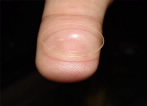
Relatives of ingredients in hair-conditioning shampoos and fabric softeners show promise as a long-sought material to fight global warming by “scrubbing” carbon dioxide (CO2 ) out of the flue gases from coal-burning electric power generating stations, scientists reported today at the 239th National Meeting of the American Chemical Society (ACS). Their report, the first on use of these so-called...
![]()
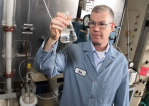
Some birds are not “bird brains” when it comes to nutrition. Scientists today reported for the first time that certain birds eat berries that are high in antioxidants during their annual migration, passing up berries that are lower in these healthful substances. The behavior may help improve the birds’ fitness for a long, stressful journey, they reported here at the American Chemical Society (ACS) 239th...
![]()
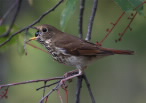
Motorists will be driving on the world’s first “green” tires within the next five years, scientists predicted here today, thanks to a revolutionary new technology that produces a key tire ingredient from renewable feedstocks rather than petroleum-derived feedstocks. The technology, described at the 239th National Meeting of the American Chemical Society (ACS), stands to reduce the tire industry’s reliance on crude oil — 7 gallons of which now...
![]()

Scientists are reporting progress toward a test that could revolutionize the diagnosis of glaucoma — the second leading cause of vision loss and blindness worldwide — by detecting the disease years earlier than usually happens at present. They reported the findings here today at the 239th National Meeting of the American Chemical Society (ACS). Glaucoma is a group of eye disorders that...
![]()
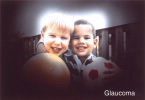
That bracing morning shower and soothing bedtime soak in the tub are potentially important but until now unrecognized sources of the hormones, antibiotics, and other pharmaceuticals that pollute the environment, scientists reported here today at the 239th National Meeting of the American Chemical Society (ACS). The first-ever evaluation they said, could lead to new ways to control environmental pollution...
![]()

Scientists in Wisconsin are reporting discovery of a way to lower the cost of converting wood, corn stalks and leaves, switch grass, and other non-food biomass materials into ethanol fuel. They describe their process, which reduces amounts of costly enzymes needed to break down tough fibrous cellulose matter in biomass for fermentation into alcohol, here today at the 239th National Meeting of the American Chemical Society (ACS) “We believe...
![]()

Scientists today presented a design strategy to produce the long-sought artificial leaf, which could harness Mother Nature’s ability to produce energy from sunlight and water in the process called photosynthesis. The new recipe, based on the chemistry and biology of natural leaves, could lead to working prototypes of an artificial leaf that capture solar energy and use it efficiently to change water into hydrogen fuel...
![]()
Journalists’ Resources
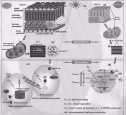
- Save the Date: ACS Fall 2010 National Meeting
Join thousands of scientists gathering in Boston August 22-26, 2010 for the 240th National Meeting & Exposition of the American Chemical Society. Watch for further information in the months ahead. - Press releases, briefings, and more from ACS’ 238th National Meeting
www.eurekalert.org/acsmeet.php
http://www.ustream.tv/channel/acslive - ACS Pressroom Blog The ACS Office of Public Affairs’ (OPA) pressroom blog highlights research from ACS’ 38 peer-reviewed journals and National Meetings.
- Bytesize Science blog Educators and kids, put on your thinking caps: The American Chemical Society has a blog for Bytesize Science, a science podcast for kids of all ages.
- ACS satellite pressroom: Daily news blasts on Twitter
The satellite press room has become one of the most popular science news sites on Twitter. To get our news blasts and updates, create a free account at https://twitter.com/signup. Then visit http://twitter.com/ACSpressroom and click the ‘join’ button beneath the press room logo. - C&EN on Twitter
Follow @cenmag <http://twitter.com/cenmag> for the latest news in chemistry and dispatches from our blog, C&ENtral Science <http://centralscience.org>. - ACS Press Releases
Press releases on a variety of chemistry-related topics. - General Chemistry Glossary
- Chemical Abstracts Service (CAS) Web site on everyday chemicals
Whether you want to learn more about caffeine, benzoyl peroxide (acne treatment), sodium chloride (table salt), or some other familiar chemical, CAS Common Chemistry can help. The new Web site provides non-chemists and others with useful information about everyday chemicals by searching either a chemical name or a corresponding CAS Registry Number. The site includes about 7,800 chemicals of general interest as well as all 118 elements from the Periodic Table, providing alternative names, molecular structures, a Wikipedia link, and other information. - Science Connections from CAS
CAS - Science Connections is a series of articles that showcases the value of CAS databases in light of important general-interest science and technology news. Topics range from fruit flies to Nobel Prize winners, with the CAS - Science Connections series pointing to CAS databases for a more complete understanding of the latest news.
- Bytesize Science
Bytesize Science is a science podcast for kids of all ages that entertains and educates, with new high-definition video podcasts and some episodes in Spanish. Subscribe to Bytesize Science using iTunes. No iTunes? No problem. Listen to the latest episodes of Bytesize Science in your web browser. - Global Challenges/Chemistry Solutions
This special series of ACS podcasts focuses on some of the 21st Century’s most daunting challenges, and how chemists and other scientists are finding solutions. Subscribe at iTunes or listen and access other resources at the ACS web site www.acs.org/GlobalChallenges. - Science Elements
Science Elements is a podcast of PressPac contents that makes cutting-edge scientific discoveries from ACS journals available to a broader public audience. Subscribe to Science Elements using iTunes. Listen to the latest episodes of Science Elements in your web browser. Science Elements is on Facebook, friend it to see the latest updates and information. - SciFinder® Podcasts
Interested in healthful plant phytochemicals, nanotechnology, or green chemistry? Check out the SciFinder series of podcasts, which explore a vast array of current interest topics and new discoveries in the 21st century. The SciFinder podcasts are available in English, Chinese, Japanese, and Portuguese.
Note to Journalists and Other Viewers
Note to reporters: The full texts of these press releases, abstracts of presentations, non-technical summaries provided by scientists, and high-resolution images are available at Eurekalert at www.eurekalert.org/acsmeet.php.
Reporters in San Francisco can attend press briefings in the ACS Press Center, South Lobby, Moscone Center. Reporters covering the meetings offsite can join the press conferences on the Internet. Click here for the press briefing schedule and instructions for joining online.
This issue of the American Chemical Society (ACS) News Service Weekly Press Package (PressPac) is a special edition with selections from scientific presentations scheduled for the ACS’ 239th National Meeting in San Francisco. Our regular coverage of reports from ACS’ 38 major peer-reviewed journals and Chemical & Engineering News will resume with the March 31, 2010, edition.
CONTENT IS STRICTLY EMBARGOED FOR VARIOUS TIMES AS INDICATED
This information is intended for your personal use in news gathering and reporting and should not be distributed to others. Anyone using advance ACS Office of Public Affairs Weekly PressPac information for stocks or securities dealing may be guilty of insider trading under the federal Securities Exchange Act of 1934.
Please cite the American Chemical Society as the source of this information or indicate that the research was presented at a meeting of the American Chemical Society.
The American Chemical Society is a nonprofit organization chartered by the U.S. Congress. With more than 161,000 members, ACS is the world’s largest scientific society and a global leader in providing access to chemistry-related research through its multiple databases, peer-reviewed journals and scientific conferences. Its main offices are in Washington, D.C., and Columbus, Ohio.

